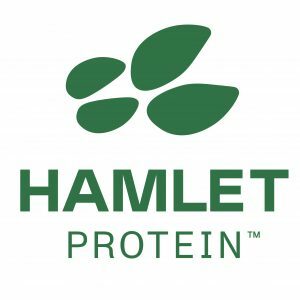Importance of ESBM in piglets diets

Piglets differ largely from older pigs when it comes to their nutritional needs. Until weaning, all their nutritional requirements were met by the sow’s milk or a sow milk replacement formula. Weaning means not only an abrupt separation from their mother but also a complete dietary change. A good dietary start at weaning is crucial to ensure health and performance later onwards in life.
Therefore, diets for weaned piglets need to be formulated with highly digestible protein sources. The protein source of choice for pigs is generally considered to be soybean meal (SBM) as soy protein is rich in the limiting amino acids lysine, threonine, and tryptophan in contrast to, for instance, cereal grains. However, SBM contains anti-nutritional factors (ANFs) that reduce protein digestibility and negatively affect piglet performance. ANFs can be partly reduced by the processing of soybean meal through heat treatment or fermentation. However, the most effective way to eliminate ANFs is through enzymatic treatment of soybean meal.
1. Low antinutritional factors (ANFs) and enhanced digestibility
Enzymatic treatment reduces the concentrations of oligosaccharides and allergenic proteins to create a product that can even be safely fed to weaned pigs. At Hamlet Protein, we have identified the ANFs that are least tolerated by piglets and which are also most limiting for health and development. Our process is designed to inactivate these ANFs gently and effectively to optimise the availability of the essential amino acids in our ESBM products.
2. Improved gut health
The reduced ANFs content in ESBM improves protein digestibility resulting in less protein reaching the hindgut where it otherwise would have been fermented by (harmful) bacteria. As a result of this fermentation process toxins are produced that impair the integrity and functioning of the intestinal membrane and activate the immune system. Nursery diets should be as low as possible in ANFs to keep the immature piglet gut healthy.
3. Improved feed conversion
Another benefit from low ANFs content in ESBM is the improvement in FCR as a result. ANFs can trigger a direct inflammatory response in the gut leading to chronical inflammation with reduced absorption capacity and increased nutrient requirements to sustain the inflammation. This also results in fewer nutrients available for the growth and performance of the animals resulting in impaired health and increased feed conversions. The low content of ANFs in ESBM ensures pigs can easily digest and absorb essential feed nutrients without losing nutrients in feed-induced inflammatory processes of the gut.
4. More resilient pigs
Not only do weaned piglets have immature enzymatic digestion, but their immune response has also not fully matured. As the immune cells are predominantly located in the gut, gut health directly affects the general health status of the animals. A healthy integer gut with a low inflammatory status is, therefore, crucial to keep the animals healthy. The use of ESBM contributes to reducing the dependency on in-feed antimicrobials while keeping up growth performance.
5. Protein precision feeding for more uniform piglets
The amino acids requirement of piglets is higher per energy unit than of older pigs, which is why they require a higher concentration of protein in their diets. One important reason for this is hypertrophy, the fact that organs and muscle growth in piglets is relatively high compared to fat growth, for instance. Muscle and organ growth require more AA than energy opposite fat growth. For example, the intestinal tract of a weaned piglet grows from 4 metres around weaning to 15 metres at 11 weeks of age; this equals 14 cms per day! Any (small) reduction in protein digestibility has therefore bigger effects in piglets than in larger animals and quickly results in less uniformity in the flock as piglets with compromised (gut) health fall behind immediately. The use of ESBM in nursery diets ensures protein precision feeding for more uniform piglets.
Since Hamlet Protein started to reduce the ANF content of SBM using an enzyme activated technology, the process has been optimised and further developed resulting in the current offering of ESBMs with an outstanding track record on pig health and growth performance.


